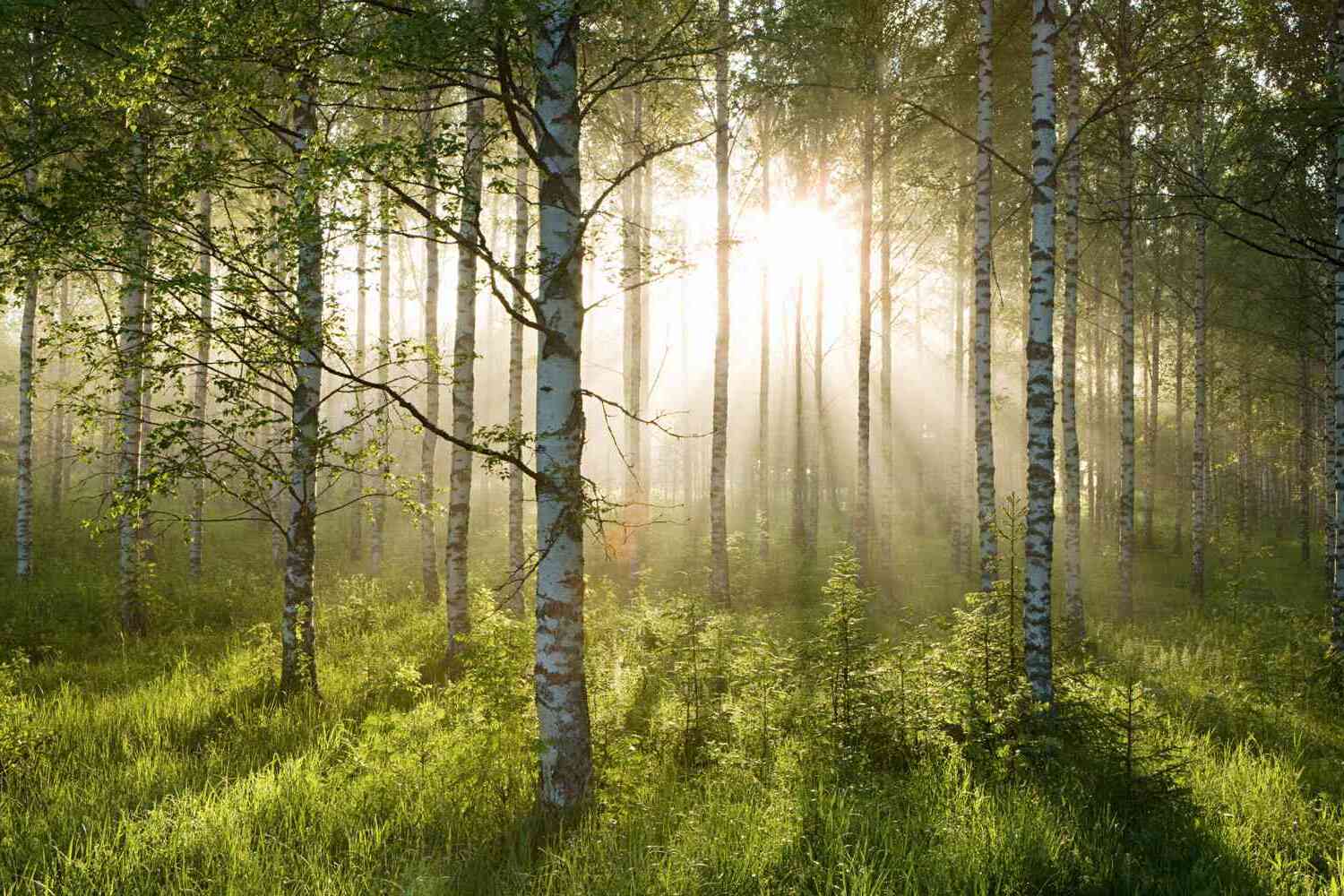
Forests are incredible habitats teeming with life. They cover about 31% of Earth's land area and house over 80% of terrestrial species. From towering trees to tiny insects, forests are bustling with biodiversity. These green giants play a crucial role in regulating the climate by absorbing carbon dioxide and releasing oxygen. Forests also provide resources like timber, medicine, and food. They act as natural water filters, ensuring clean water for countless communities. However, deforestation threatens these vital ecosystems. Understanding forest habitats helps us appreciate their importance and the need for conservation. Ready to learn some amazing facts about forests? Let's dive into the wonders of these lush landscapes!
Key Takeaways:
- Forests are crucial for the planet's health, providing oxygen, regulating climate, and supporting diverse wildlife. Human impact, including deforestation and climate change, threatens these vital habitats.
- Conservation efforts like reforestation, protected areas, and sustainable forestry practices are essential for preserving forests and their ecological and economic benefits. Let's protect and cherish these fascinating and vital ecosystems!
What is a Forest Habitat?
A forest habitat is a complex ecosystem dominated by trees and other vegetation. These habitats are crucial for the survival of countless species and play a significant role in maintaining the planet's health. Let's explore some fascinating facts about forest habitats.
- Forests cover about 31% of the Earth's land area.
- There are three main types of forests: tropical, temperate, and boreal.
- Tropical forests are found near the equator and are known for their biodiversity.
- Temperate forests have four distinct seasons and are found in regions like North America and Europe.
- Boreal forests, also known as taiga, are located in the northern hemisphere and are characterized by cold climates.
Importance of Forests
Forests are not just a collection of trees; they are vital for the environment and human life. They provide numerous benefits that are often taken for granted.
- Forests produce oxygen, which is essential for human and animal life.
- They act as carbon sinks, absorbing carbon dioxide from the atmosphere.
- Forests help regulate the Earth's climate by influencing weather patterns.
- They prevent soil erosion by stabilizing the soil with their root systems.
- Forests are a source of medicinal plants, many of which are used in traditional and modern medicine.
Biodiversity in Forests
Forests are home to an incredible variety of life forms. The biodiversity within these habitats is astonishing and crucial for ecological balance.
- Over 80% of the world's terrestrial animals and plants live in forests.
- Tropical rainforests are home to more species than any other terrestrial habitat.
- Forests provide habitat for endangered species like the orangutan and the Sumatran tiger.
- Many forest species are still undiscovered, with scientists estimating that millions of species remain unknown.
- Forests support complex food webs, with each species playing a unique role.
Human Impact on Forests
Human activities have significantly impacted forests, often leading to devastating consequences. Understanding these impacts is crucial for conservation efforts.
- Deforestation is the primary threat to forests, driven by logging, agriculture, and urbanization.
- Approximately 18 million acres of forest are lost each year due to deforestation.
- Forest degradation affects the livelihoods of over 1.6 billion people who rely on forests for their daily needs.
- Illegal logging contributes to the loss of forests and biodiversity.
- Climate change exacerbates forest degradation by increasing the frequency of wildfires and pest outbreaks.
Conservation Efforts
Efforts to conserve and restore forests are essential for maintaining their ecological and economic benefits. Various strategies are being implemented worldwide to protect these vital habitats.
- Reforestation involves planting trees in areas where forests have been cut down.
- Afforestation is the process of creating new forests in areas that were not previously forested.
- Protected areas, such as national parks and wildlife reserves, help safeguard forest habitats.
- Sustainable forestry practices aim to balance the needs of the environment, wildlife, and human communities.
- Community-based forest management empowers local communities to manage and protect their forests.
Fun Facts About Forests
Forests are not just important; they are also fascinating. Here are some fun facts that highlight the unique and intriguing aspects of forest habitats.
- The Amazon Rainforest is often referred to as the "lungs of the Earth" because it produces 20% of the world's oxygen.
- The tallest tree in the world is a coast redwood named Hyperion, which stands at 379.7 feet.
- Some trees in the boreal forests of Canada and Russia are over 10,000 years old, making them some of the oldest living organisms on Earth.
Final Thoughts on Forest Habitats
Forest habitats are vital for our planet. They house countless species, provide oxygen, and help regulate the climate. These ecosystems are incredibly diverse, ranging from tropical rainforests to temperate woodlands. Each type supports unique plants and animals, contributing to Earth's biodiversity.
Deforestation poses a significant threat. It leads to habitat loss, endangering many species and disrupting ecological balance. Sustainable practices and conservation efforts are crucial to protect these natural wonders.
Forests also offer numerous benefits to humans. They supply resources like timber, medicine, and food. Additionally, they provide recreational spaces and contribute to mental well-being.
Understanding the importance of forest habitats encourages us to take action. Simple steps like reducing paper use, supporting conservation organizations, and spreading awareness can make a difference. Let's work together to preserve these essential ecosystems for future generations.
Frequently Asked Questions
Was this page helpful?
Our commitment to delivering trustworthy and engaging content is at the heart of what we do. Each fact on our site is contributed by real users like you, bringing a wealth of diverse insights and information. To ensure the highest standards of accuracy and reliability, our dedicated editors meticulously review each submission. This process guarantees that the facts we share are not only fascinating but also credible. Trust in our commitment to quality and authenticity as you explore and learn with us.
